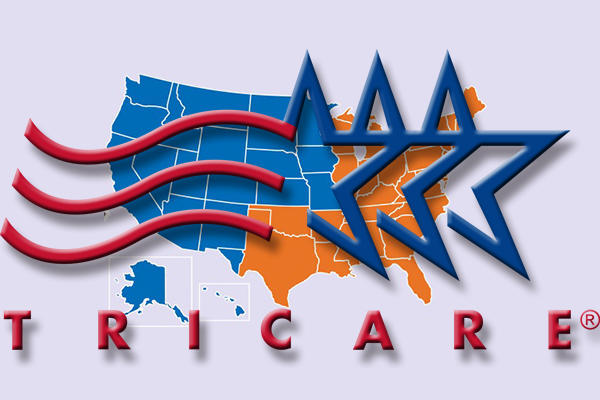 Military Update: Leaders of military medicine are promising TRICARE beneficiaries a smooth transition of healthcare coverage next year when three support contract regions (North, South and West) are reorganized into two (East and West), and many TRICARE users see different contractors take charge of civilian provider networks that deliver health benefits off base. The two new mammoth TRICARE support contracts, valued at a combined $58 billion over five years, are designed to more standardize care quality across networks, improve monitoring of provider performance, and smooth continuity of care by requiring networks providers to share patient care data with the military direct care system using electronic health records. The new contracts also will “make it easier for our highly mobile population to enroll and receive care,” said Dr. Karen Guice, acting assistant secretary of defense for health affairs. That’s because care management services are to be enhanced. This along with a merger of two regions should help families with special needs children avoid some current hassles of change-of-station moves, such as interrupted therapy treatments. It’s the Congress that will be mandating the most sweeping changes to TRICARE over the next several years. Anticipating that, Guice said, “we’ve embedded flexibility into the contracts to help [us] more quickly adopt effective new delivery care approaches and important innovations in care.” TRICARE, the military’s triple-option health insurance benefit, currently is delivered across three geographic regions. United Healthcare administers the West Region, Health Net Federal Services of Rancho Cordova, Calif., the North Region of northeastern states and Humana Government Business of Louisville, Ky., operates South Region, of southeastern states. Defense officials announced last week that Health Net has been selected to replace United Healthcare in managing West Region, a contract valued at the $17.7 billion. Humana had the winning bid for the consolidated East Region of northeastern and southeastern states. That total potential contract value is $40.5 billion. Even more money will likely be at stake when Congress decides later this year how it wants to reorganize TRICARE from the separate packages of reforms embraced by the House and Senate in their fiscal 2017 defense authorization bills. None of the proposed changes, being negotiated this summer, are reflected yet in new TRICARE support contracts. Though defense officials tout the flexibility of the new contracts, Joyce Wessel Raezer, executive director of National Military Family Association, said Congress will be enacting benefit changes that likely will force more contract changes both before and after the new contracts take effect. “All that’s going to add up to more money,” Raezer said, “and this is money that’s not spent on the delivery of health care but rather on the processes enabling the delivery of health care.” Raezer agreed with defense officials that the first point to emphasize with beneficiaries is that the new contracts will have no impact this year on delivery of their health care. Four companies had bid one region’s contract and three on another. Losing bidders can protest the awards, a common practice. Months from now, if the contracts are upheld and formally awarded, Humana and Health Net will have nine months to prepare networks and educate beneficiaries on how they will take over administration of the East and West regions. This is the fourth generation of TRICARE contracts, Guise said, and “reflects 20 years of experience and feedback from our beneficiaries as well as the changing health care marketplace and advances in providing care.” Navy Vice Adm. Raquel Bono, director of the Defense Health Agency (DHA), which oversaw development and award of the new contracts, said consolidating three regions into two is the biggest challenge. “This change alone will simplify the process and reduce administrative burdens on our beneficiaries as they move or travel around the country, especially for our families with special needs children. For the government it also reduces administrative overhead costs through increased standardization, saving taxpayer dollars,” Bono explained. Raezer agreed, although “the devil is in the details.” “If you’re a Navy family moving from Jacksonville [Fla.] to Norfolk [Va.] with a special needs child, you will probably get to keep your case manager from the contractor because you’re not transferring regions. So presumably that process should go better,” Raezer said. “Also having two contractors rather than three frankly also means we only have two interpretations of TRICARE policies rather than three, so that may be better.” DHA Director Bono also promised that improved contract management, transition oversight and administrative processes will ease beneficiary access to services. DHA didn’t exist when the last generation of TRICARE contracts was implemented and there were widespread problems for beneficiaries in West Region when United Healthcare took control. The Government Accountability Office blamed poor guidance and oversight by TRICARE managers. For example, the then-TRICARE Management Activity failed to ensure “outgoing and incoming contractors used the same version of transition guidance, resulting in problems that were left largely to the contractors to resolve,” the GAO said in a 2014 report. TRICARE managers told GAO that the performance-based contract for West Region didn’t allow them to hold United Healthcare accountable for outcomes until requirements were missed. But GAO disagreed, finding TRICARE had sufficient oversight to ensure the contractor was performing as required, yet it failed to exercise those responsibilities. As a result, beneficiaries saw care disrupted and TRICARE had unnecessary costs. Bono promised tighter oversight of the new contracts as well as many improvements. “We also placed an increased emphasis on customer satisfaction to promote responsiveness and accountability,” she said. “Military treatment facility commanders’ input as well as beneficiaries’ satisfaction data will have a role in determining the contractors’ performance awards.” Send comments to Military Update, P.O. Box 231111, Centreville, VA, 20120, email milupdate@aol.com or twitter: Tom Philpott @Military_Update. # # # # Tom Philpott has been breaking news for and about military people since 1977. After service in the Coast Guard, and 17 years as a reporter and senior editor with Army Times Publishing Company, Tom launched "Military Update," his syndicated weekly news column, in 1994. "Military Update" features timely news and analysis on issues affecting active duty members, reservists, retirees and their families. Visit Tom Philpott's Military Update Archive to view his past articles. Tom also edits a reader reaction column, "Military Forum." The online "home" for both features is Military.com.
Military Update: Leaders of military medicine are promising TRICARE beneficiaries a smooth transition of healthcare coverage next year when three support contract regions (North, South and West) are reorganized into two (East and West), and many TRICARE users see different contractors take charge of civilian provider networks that deliver health benefits off base. The two new mammoth TRICARE support contracts, valued at a combined $58 billion over five years, are designed to more standardize care quality across networks, improve monitoring of provider performance, and smooth continuity of care by requiring networks providers to share patient care data with the military direct care system using electronic health records. The new contracts also will “make it easier for our highly mobile population to enroll and receive care,” said Dr. Karen Guice, acting assistant secretary of defense for health affairs. That’s because care management services are to be enhanced. This along with a merger of two regions should help families with special needs children avoid some current hassles of change-of-station moves, such as interrupted therapy treatments. It’s the Congress that will be mandating the most sweeping changes to TRICARE over the next several years. Anticipating that, Guice said, “we’ve embedded flexibility into the contracts to help [us] more quickly adopt effective new delivery care approaches and important innovations in care.” TRICARE, the military’s triple-option health insurance benefit, currently is delivered across three geographic regions. United Healthcare administers the West Region, Health Net Federal Services of Rancho Cordova, Calif., the North Region of northeastern states and Humana Government Business of Louisville, Ky., operates South Region, of southeastern states. Defense officials announced last week that Health Net has been selected to replace United Healthcare in managing West Region, a contract valued at the $17.7 billion. Humana had the winning bid for the consolidated East Region of northeastern and southeastern states. That total potential contract value is $40.5 billion. Even more money will likely be at stake when Congress decides later this year how it wants to reorganize TRICARE from the separate packages of reforms embraced by the House and Senate in their fiscal 2017 defense authorization bills. None of the proposed changes, being negotiated this summer, are reflected yet in new TRICARE support contracts. Though defense officials tout the flexibility of the new contracts, Joyce Wessel Raezer, executive director of National Military Family Association, said Congress will be enacting benefit changes that likely will force more contract changes both before and after the new contracts take effect. “All that’s going to add up to more money,” Raezer said, “and this is money that’s not spent on the delivery of health care but rather on the processes enabling the delivery of health care.” Raezer agreed with defense officials that the first point to emphasize with beneficiaries is that the new contracts will have no impact this year on delivery of their health care. Four companies had bid one region’s contract and three on another. Losing bidders can protest the awards, a common practice. Months from now, if the contracts are upheld and formally awarded, Humana and Health Net will have nine months to prepare networks and educate beneficiaries on how they will take over administration of the East and West regions. This is the fourth generation of TRICARE contracts, Guise said, and “reflects 20 years of experience and feedback from our beneficiaries as well as the changing health care marketplace and advances in providing care.” Navy Vice Adm. Raquel Bono, director of the Defense Health Agency (DHA), which oversaw development and award of the new contracts, said consolidating three regions into two is the biggest challenge. “This change alone will simplify the process and reduce administrative burdens on our beneficiaries as they move or travel around the country, especially for our families with special needs children. For the government it also reduces administrative overhead costs through increased standardization, saving taxpayer dollars,” Bono explained. Raezer agreed, although “the devil is in the details.” “If you’re a Navy family moving from Jacksonville [Fla.] to Norfolk [Va.] with a special needs child, you will probably get to keep your case manager from the contractor because you’re not transferring regions. So presumably that process should go better,” Raezer said. “Also having two contractors rather than three frankly also means we only have two interpretations of TRICARE policies rather than three, so that may be better.” DHA Director Bono also promised that improved contract management, transition oversight and administrative processes will ease beneficiary access to services. DHA didn’t exist when the last generation of TRICARE contracts was implemented and there were widespread problems for beneficiaries in West Region when United Healthcare took control. The Government Accountability Office blamed poor guidance and oversight by TRICARE managers. For example, the then-TRICARE Management Activity failed to ensure “outgoing and incoming contractors used the same version of transition guidance, resulting in problems that were left largely to the contractors to resolve,” the GAO said in a 2014 report. TRICARE managers told GAO that the performance-based contract for West Region didn’t allow them to hold United Healthcare accountable for outcomes until requirements were missed. But GAO disagreed, finding TRICARE had sufficient oversight to ensure the contractor was performing as required, yet it failed to exercise those responsibilities. As a result, beneficiaries saw care disrupted and TRICARE had unnecessary costs. Bono promised tighter oversight of the new contracts as well as many improvements. “We also placed an increased emphasis on customer satisfaction to promote responsiveness and accountability,” she said. “Military treatment facility commanders’ input as well as beneficiaries’ satisfaction data will have a role in determining the contractors’ performance awards.” Send comments to Military Update, P.O. Box 231111, Centreville, VA, 20120, email milupdate@aol.com or twitter: Tom Philpott @Military_Update. # # # # Tom Philpott has been breaking news for and about military people since 1977. After service in the Coast Guard, and 17 years as a reporter and senior editor with Army Times Publishing Company, Tom launched "Military Update," his syndicated weekly news column, in 1994. "Military Update" features timely news and analysis on issues affecting active duty members, reservists, retirees and their families. Visit Tom Philpott's Military Update Archive to view his past articles. Tom also edits a reader reaction column, "Military Forum." The online "home" for both features is Military.com.  Tom's freelance articles have appeared in numerous magazines including The New Yorker, Reader's Digest and Washingtonian. His critically-acclaimed book, Glory Denied, on the extraordinary ordeal and heroism of Col. Floyd "Jim" Thompson, the longest-held prisoner of war in American history, is available in hardcover and paperback. Buy Glory Denied from Amazon
Tom's freelance articles have appeared in numerous magazines including The New Yorker, Reader's Digest and Washingtonian. His critically-acclaimed book, Glory Denied, on the extraordinary ordeal and heroism of Col. Floyd "Jim" Thompson, the longest-held prisoner of war in American history, is available in hardcover and paperback. Buy Glory Denied from Amazon

© Copyright 2024 Military.com. All rights reserved. This article may not be republished, rebroadcast, rewritten or otherwise distributed without written permission. To reprint or license this article or any content from Military.com, please submit your request here.



